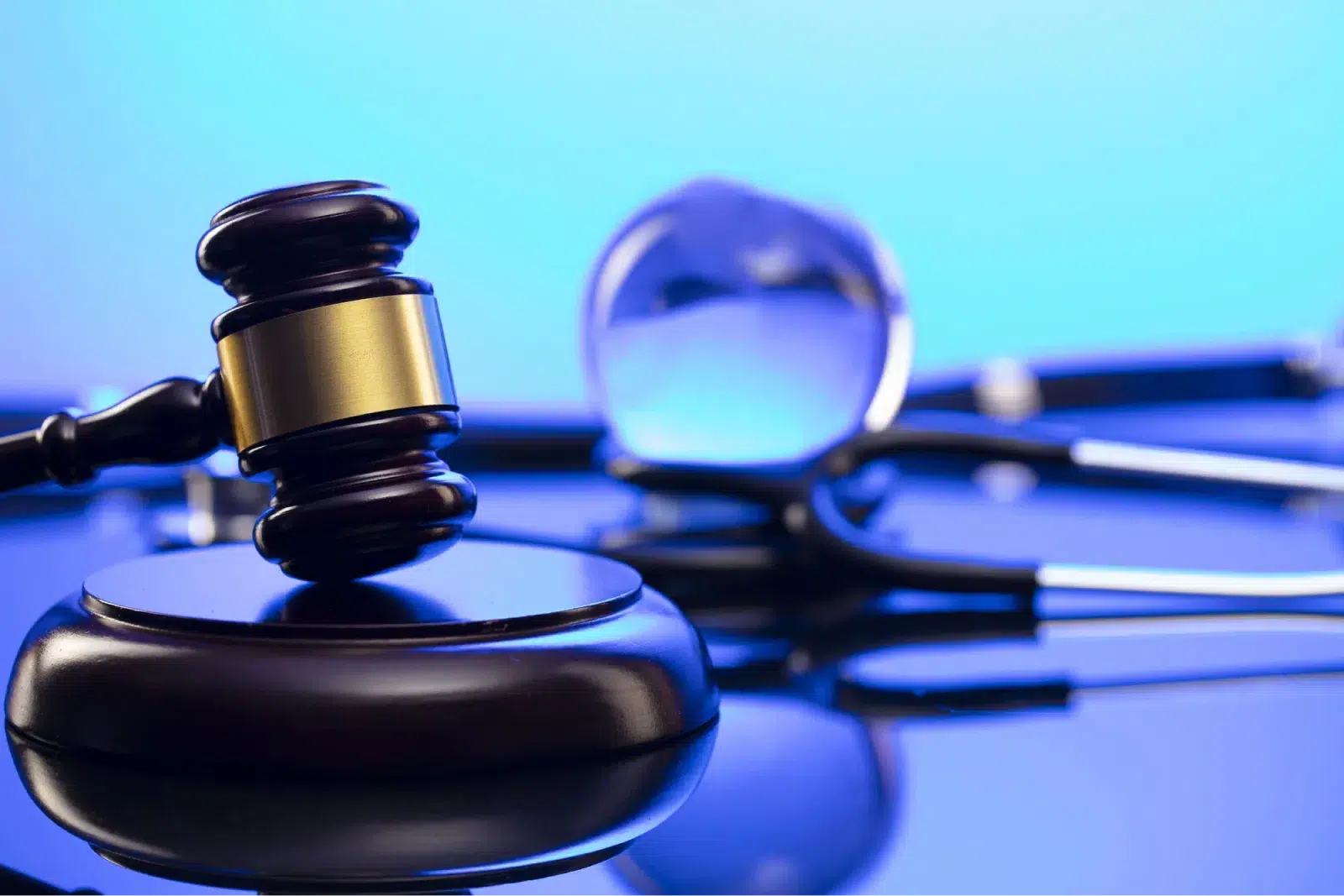What Is An Evidentiary Hearing?
Attorney Reed Bloodworth explains that Bloodworth Law litigation often involves an evidentiary hearing, but what is an evidentiary hearing?
“In an evidentiary hearing, that’s a situation that requires the judge to hear witness testimony that’s under oath, that is relevant to the issue in the case,” Reed said. “When you have an evidentiary hearing, the first thing you’ve got to do is specifically set it for an evidentiary hearing so that the court is aware that witnesses be available.
“In most circumstances, you need to prepare exhibits ahead of time and get them pre-marked. You treat it somewhat like a mini-trial, like a little bench trial, and very similar to a trial.”
Two Types of Hearings: Standard And Evidentiary
Reed explains that in litigation, you have two types of hearings: a standard hearing and an evidentiary hearing.
“You have a standard hearing where no evidence is necessary,” Reed said. “And it’s just legal arguments by the attorneys.
“Then there are those occasions where evidence is required to be heard by the court. That requires setting up an evidentiary hearing.”
Motion To Dismiss
Reed said that an example of a non-evidentiary hearing typically is a motion to dismiss.
“Someone files a complaint, like a business dispute, or files a petition and probate litigation, and the party opposing that can file a motion to dismiss.
“In a motion to dismiss, you are restricted to just looking at the four corners of the document, so you’re just looking at the language in the complaint or the language in the petition. And it’s a matter of law for the judge to decide, ‘are the elements pled that are necessary for the causes of action that have been asserted?’
“And for that, you don’t need evidence,” Reed said. “The judge just looks at the complaint or looks at the petition and says, ‘Yes, all the elements are properly pled.’ Or, ‘No, they’re not. This one’s dismissed. Please file an amended one, and we’ll try again.’”
Reed explained that “oftentimes when you have an evidentiary hearing, the attorneys will give a brief opening, and then a witness will be called, and the attorney that calls the witness will do their direct exam.
“The opposing attorney will get to do a cross-exam. And then the calling attorney may get to do a rebuttal portion, and then you go on to the next witness if it’s necessary.
“And you continue that, much like you would at a trial. And through the witnesses that you call, that’s how you get your documents into evidence.”
Entering Documents Into Evidence
“For example,” Reed said. “If we’re at an evidentiary hearing on a motion for sanctions, and the party who filed the motion for sanctions wants to get into evidence a string of emails that they were a part of that proves the claim or defense or whatever the case may be at issue is meritless, thus giving the basis for a motion for sanctions.
“The attorney has to get that type of evidence entered by a person with first-hand knowledge. Thus, in an email stream, for example, you would need someone that sent the email or received the email to get it entered into evidence, so if you have to introduce the document, you’ve got to lay your foundation, asking the witness:
- What is this document or these documents?
- Have you seen this?
- How are you familiar with it?
- And then you would move to have it entered into evidence so that the court can consider it.
Issues That Require Evidentiary Hearings
“There are many types of issues that require evidentiary hearings in a trust dispute,” Reed said. “For example, if a trustee in a breach of trust case gives notice that he or she or it, in the case of a corporate trustee, intends to use trust assets to defend the breach of trust action, the plaintiff can file a motion to prevent that.
“And under Florida statutes, the judge must consider evidence to determine whether or not the plaintiff has a reasonable chance of succeeding on its claim of proving a breach of trust. And that’s just one example of many, but that’s a statutory requirement for an evidentiary hearing.
Issues That Require Evidentiary Hearings
Other types of issues that require evidentiary hearings:
- Typically most injunctions require an evidentiary hearing.
- In a probate dispute or a trust dispute, if you’re seeking to remove a personal representative or remove a trustee, it typically requires an evidentiary hearing.
- If in a business litigation case you are seeking to have perhaps a receiver appointed to take control over a business, it typically requires an evidentiary hearing.
Evidentiary hearings are very common, and they are like small bench trials. You have to prepare for them in that fashion.
About Bloodworth Law
Florida attorney L. Reed Bloodworth founded Bloodworth Law in 2016 as a solo law practice that handled trust litigation, probate and estate litigation, and business litigation.
Today, Bloodworth Law, PLLC, is a 2022 U.S. News & World Report “Best Law Firm” with skilled partners, attorneys, and legal staff in Orlando, and Winter Haven. Bloodworth Law represents clients in:
- Trust litigation
- Probate litigation
- Business Litigation
- Commercial litigation
- Employer and labor law issues
- Trust Administration
- Probate Administration
- Estate Planning
- PIP Litigation, and,
- Mediation



